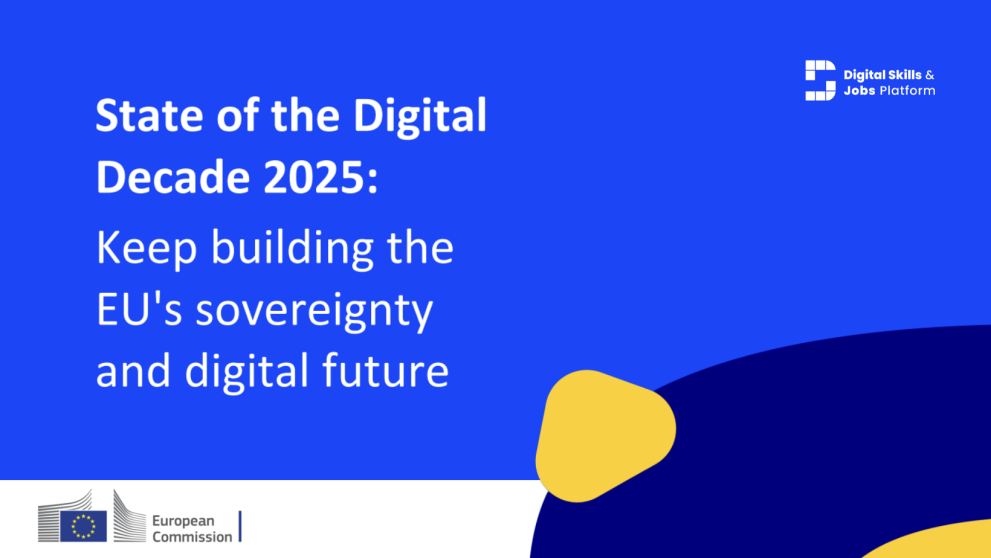European Commission publishes the 2025 State of the Digital Decade package

The European Commission has released the 2025 State of the Digital Decade package, a flagship update on how the EU is progressing towards its 2030 digital targets. From faster connectivity to stronger digital skills, the Digital Decade sets out a vision for a more digitally sovereign and resilient Europe. The package provides a detailed overview of where Member States stand, what improvements are underway, and where urgent action remains necessary. The package includes:
The 2025 State of the Digital Decade report - An EU-wide assessment of key areas such as digital skills, connectivity, digital public services, and business digitalisation.
27 Country reports and 27 Country fact pages - Performance snapshots and tailored recommendations for each EU Member State, analysis of national digital roadmaps and updates on cross-border initiatives in areas like AI, quantum, cloud, and digital infrastructure.
Policy recommendations – Concrete actions to close gaps in areas such as digital skills, 5G rollout, AI adoption, and semiconductor capacity.
In a few words
There’s good news: 5G coverage is growing, digital public services are improving, and edge computing is boosting Europe’s data capacity. Member States have invested over €288 billion in digital projects.
Challenges remain—only 55.6% of Europeans have basic digital skills, and there’s a shortage of ICT specialists, especially women, affecting fields like AI and cybersecurity.
Some concerns: Europe still relies heavily on non-EU providers for AI, cloud, and semiconductors, raising issues of resilience and security. Digitalisation is also driving up energy demand and intensifying societal concerns like disinformation, online safety, and child protection.
2025: A make-or-break year for Europe’s digital future
2025 will be a crucial year for accelerating digital progress. Reaching the Digital Decade targets is key to boosting the EU’s economy and reducing its dependence on external tech providers. To support this, the EU recommends further investment in strategic technologies, reforms to enhance the functioning of the single market, and efforts to reduce bureaucratic obstacles for European tech companies.





